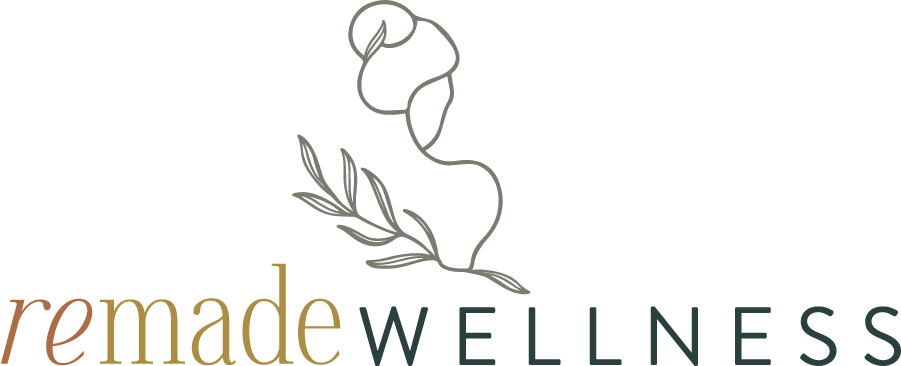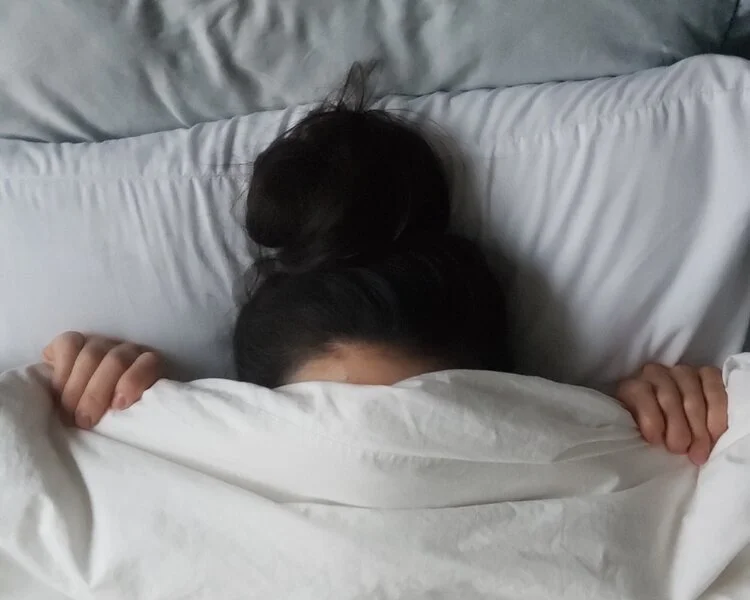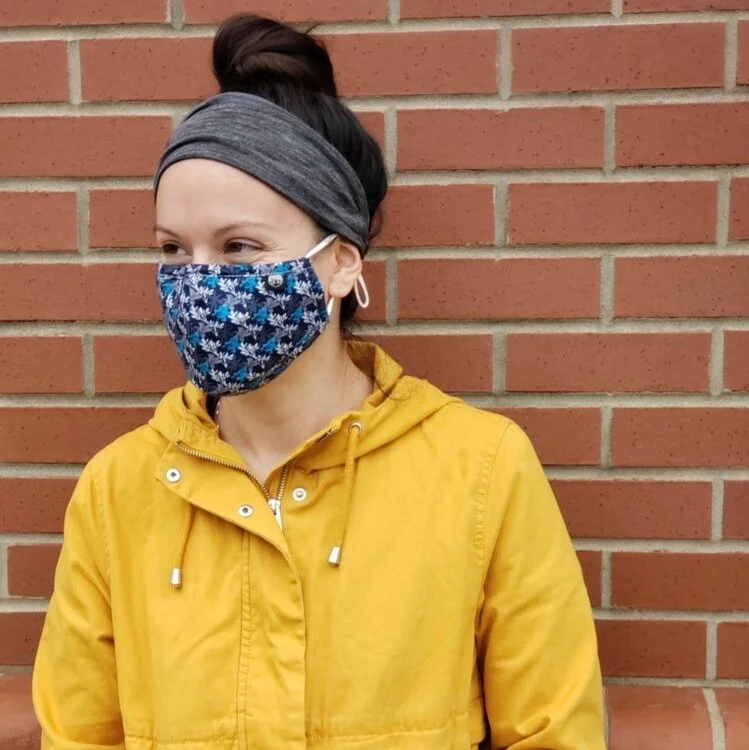Getting Back to "Normal Life" with Autoimmune Disease
Doesn’t it always happen this way? Just when you feel you’ve mastered something, it changes. That is how I am feeling about “returning to normal.” With states opening back up, the thought of going back to normal life feels like a snake beginning to tighten around my neck.
Don’t get me wrong, quarantine home life has been challenging in its own way, but at the same time life has been a little slower. I haven’t seen 4:00 a.m. in a few months and don’t ever really want to go back to that. I drink tea in the mornings as I spend time in my bible. I have time to read during the day. And I would not like to give up daily walks with my husband.
I am thinking I am not alone in feeling this way. Because if there is one thing I know about humans, it’s that change is hard, for anyone, in any season. And it is especially difficult for those living with Lupus, or any other autoimmune disease. External changes disturb our internal rhythm. For me, change represents chaos. My nailed-down routine is uprooted. I have to relearn things that I previously mastered. And in my mind, I see the script change. What was once a “good job Daniela,” turns into “why can’t you get this right?”
Around this time last year, I wrote a series of blog posts on navigating the changing seasons with an autoimmune disease. The transition from summer to fall is a tough one for me; it always has been. But over the years, as I anticipate that change, I have developed certain strategies that help me navigate the changing season without experiencing significant flare-ups. And something tells me that those same strategies can apply to returning back to life as we [somewhat] knew it - just with a face mask on.
1. Breathe.
Did you know that you breathe well over 23,000 times each day? That’s a lot of breaths. Because we repeat that action so many times per day, poor breathing habits will result in excessive energy expenditure. Breathing is attached to every other system in your body, especially your nervous system. Controlled breathing increases your body's ability to handle and process mental, physical, and emotional stress, making you a more resilient Lupus thriver.
Protect your breathing energy by taking a few moments each day to practice specific breathing tempos.
For moments of stress relief throughout your day practice this breathing tempo a couple of times through your nose to a count of 6-4-10. Inhale from your belly for 6 seconds, hold your breath for 4 seconds, exhale for 10 seconds.
For moments of tiredness, practice the 4-0-X. Inhale for 4 seconds, no hold, and a forceful breath out.
For moments of mindfulness throughout the day, practice the 8-4-12 tempo. Inhale slowly for 8 seconds, hold for 4 seconds, and slowly exhale for 12 seconds while letting go of tension in your neck and shoulders.
Because breathing is so connected to your nervous system, a structured pattern of breathing creates a more rhythmic pattern in your body. This can actually influence your immune system to be more rhythmic, less hyperactive, and ready to defend you.
2. Set Your Own Boundaries
Setting boundaries is not something I am always good at. When I say yes to everything, I get so overwhelmed that my body just wants to shut down. I want to encourage you to create boundaries in your time and physical distance between you and people.
There will come a turning point when being in quarantine is no longer the norm. We will be expected to return to the workplace, maybe without the encouragement to work from home. The expectation to attend social gatherings, fitness centers, restaurants, etc. will not be given a second thought. Pressures from friends, family, and coworkers will begin to invade the safe space you created for yourself.
I know it can feel like you are letting others down if you say no to invitations, both in person and virtual events. You may (re)experience feelings of loneliness or unworthiness. You may feel like life is moving on without you. But let me take a moment to remind you that you create your own experience in this life. And if you are not ready to return to a fitness center or any other public space, that is okay. You have permission to be a space that feels right to you.
Side note: This does not mean that you get a pass on paying attention to your own health and well-being. By choosing to be in your own space, whatever space that is, you have the responsibility to make that space conducive to your health and wellness goals. And if you need help with that, I know a great health coach ;)
And if you do decide to venture out to social gatherings, be mindful of your physical space. A few weeks ago, I was in Statesville, at my parent’s house. I knew people were coming over, but I was not anticipating so many. I felt concerned. I have a Latina family so the natural way of greeting includes a hug and a cheek to cheek “kiss.” Have you ever tried to turn one down? [Insert maximum social awkwardness].
In order to protect my health, I had to make the conscious decision to greet everyone from afar, just a hand wave and smile. And although everyone one seemed understanding, there was a bit of low-key judgement from a few. The awkwardness soon faded, until it was time to say goodbye… [Re-insert maximum social awkwardness].
My point is, it is okay to create physical distance from others until you feel comfortable getting close again. There is no timeline. Assess each encounter in its own way. Others will understand, and their low-key judgement will fade. You will know when the time is right for you. You will feel comfortable. But in the meantime, know that your health is important.
3. Sleep Hygiene.
Sleep impacts every system in your body. From psychological and physical to the unseen processes such as your metabolism. Your sleep hygiene, or your sleep environment, have a significant impact on your sleep quality. It doesn’t matter if you sleep for eight hours each night; you need to aim for quality over quantity to truly experience the restorative benefits of sleep. Poor sleep will result in elevated levels of cortisol, the stress hormone, making any transition period harder than it needs to be - difficulty thinking clearly, stress eating, and chronic fatigue.
Spatial designation. Keep your bedroom for sleeping only. Do not take your work, arguments, social media scrolling, overthinking, or anything else that is not related to sleep or rest. I am a nighttime thinker and like to keep a journal beside my bed to write down all of my thoughts so I can mental unwind. Give yourself 5 minutes, write down all of your thoughts, to-do list, and at least three moments of gratitude from your day (the most important!).
Blue and white light. Blue and white light from your electronics - tv, computer, phone, etc. disrupt your circadian rhythm and ability to fall asleep at night. When your eyes are overexposed to blue and white light in the evening, it confuses your brain into thinking it is still day time. Thus you have a more difficult time falling asleep. I encourage you to turn off electronics at least 30-60 minutes before bed. I also like to use blue light blocking glasses in the evening if i need to be on my computer a little longer or want to watch a tv show after dinner.
Room Temperature. Your room temperature could also be the culprit of a not-so-great night’s sleep. Check your thermostat. Dropping your thermostat somewhere between 65-72 degrees at night has been shown to help you fall asleep faster and stay asleep longer. Play around with the temperature and find which one suits you best.
4. Be aware of your inner script.
The voice in our own head is so tricky; it can make the difference between an incredible day and a down right disaster. I remember thinking at the beginning of being quarantined that “I will not make it through this.” It was different, and I didn’t like having my small apartment home turned into our workspace.
As we transition back to being actively involved in society, take note of your inner script. Do you find yourself using words and phrases like “anxiety, stress, overwhelmed, I can’t do this?” Words have an ability to impact our emotional wellbeing, which in turn impacts our physical wellbeing. And wherever your mental focus goes, energy flows in that direction.
Take a moment each morning, look yourself in the mirror and say, “I claim my own power. I love and approve of myself.” The more you give focus to uplifting thoughts and words, the more uplifting your experiences will be.
“I claim my own power. I love and approve of myself.”
And remember to be gentle with yourself. You won’t always get it right the first time. And if COVID-19 has taught us anything, things are unexpected. So take each thought captive (2 Corinthians 10:5) and assess whether it is true or just a momentary thought.
5. Communicate
Communicating can be difficult especially as we, the patients, try to navigate through the uncertainty of autoimmune disease and the uncertainty of the world around us. Keep in mind that what was once true at the beginning of quarantine, may not be true as the world reopens.
Now more than ever, it is important to have open and honest communication between yourself and those around you - family, friends, caregivers, colleagues, etc. Be clear about your expectations. This will help others provide the care and attention that you need in this time in order to prevent unwanted flare-ups.
Do you have concerns about returning to the office? Communicate that with your boss and develop a plan to continue working from home. Do you feel uncomfortable going to another family get together? Communicate that and offer to call in via video to say hello. Do you have COVID-19-related financial difficulties? Communicate that to your doctor's office to set up a manageable payment plan or defer payments for a period of time.
If you feel afraid to express your needs for fear of judgement, be willing to ask others what they need in this time. And they will be more likely to honor your needs in return.
6. Wear your mask with patience
I know wearing a mask is frustrating and makes you feel trapped. But in my opinion, it is better to be safe and do what you can to prevent the spread of COVID-19. There is a lot of uncertainty around mask wearing, but as Lupus thrivers, your immune system cannot take the risk.
Remember that most people have never had to deal with a chronic illness, either for themselves or a loved one. They have never had to experience the fear that comes with undiagnosed symptoms or on-going medical treatments. They have never had to take extra precautions for their own health or those around them. Maybe it’s not that they do not care, but they have never had first-hand experience with an autoimmune disease.
Be an example for those around you, wear your mask patiently, and know you are making a difference by being proactive about your own health and the health of others.
Transitions can feel suffocating, but they can also be an opportunity to relearn and reimplement strategies that may have fallen off your radar. There is no doubt that this COVID season has been a trying one and will continue to present challenges as our country tries to reintegrate societal norms.
But I want to remind you that everyone else’s normal does not have to be your normal. You create your time, space, thoughts, and actions. Be gentle with yourself and take each day as it comes. Remember to breathe, give yourself margins, honor your sleep needs, and talk it out.




